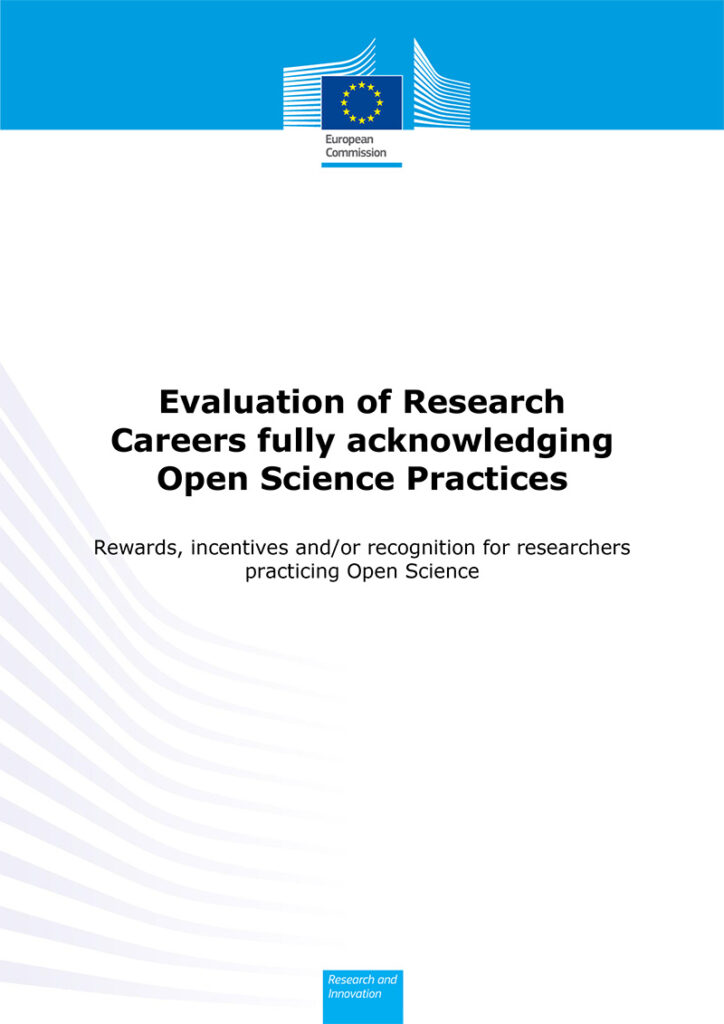Evaluation of Research Careers fully Acknowledging Open Science Practices, a report released by the European Commission in 2017, recognizes the emerging Open Science movement creates an opportunity to develop an evaluation system for hiring and promotion that is focused on the equal treatment of applicants. The report finds the Journal Impact Factor does not accurately describe all articles in a particular journal and ‘makes no sense’ for evaluation purposes. DORA is listed in the report as one of the main initiatives calling for change in the scientific community. Yet, the report also shows that some institutions have signed DORA without implementing its principles in their faculty hiring and promotion procedures. In a survey conducted in conjunction with the report, 14% of respondents from funding agencies signed DORA and 7% said they would not.
From Section 3.2 Beyond the Impact Factor
In terms of metrics, evaluation is mainly based on researchers’ prestige, which, very often, is inferred from the prestige of the journals in which researchers publish their works. The journals’ prestige is in turn based mainly (if not only) on the Journal Impact Factor (JIF). Several works demonstrate clearly the disruptive value of the JIF: the vast majority of authors are taking advantage of the citations gathered by a small minority. Due to the shape of the frequency distribution of the number of citations (an over-dispersed distribution, where a few articles have a very high number of citations, and the vast majority articles have a few or, even, zero) calculating an ‘average’ figure and attributing it to all articles makes no sense.


